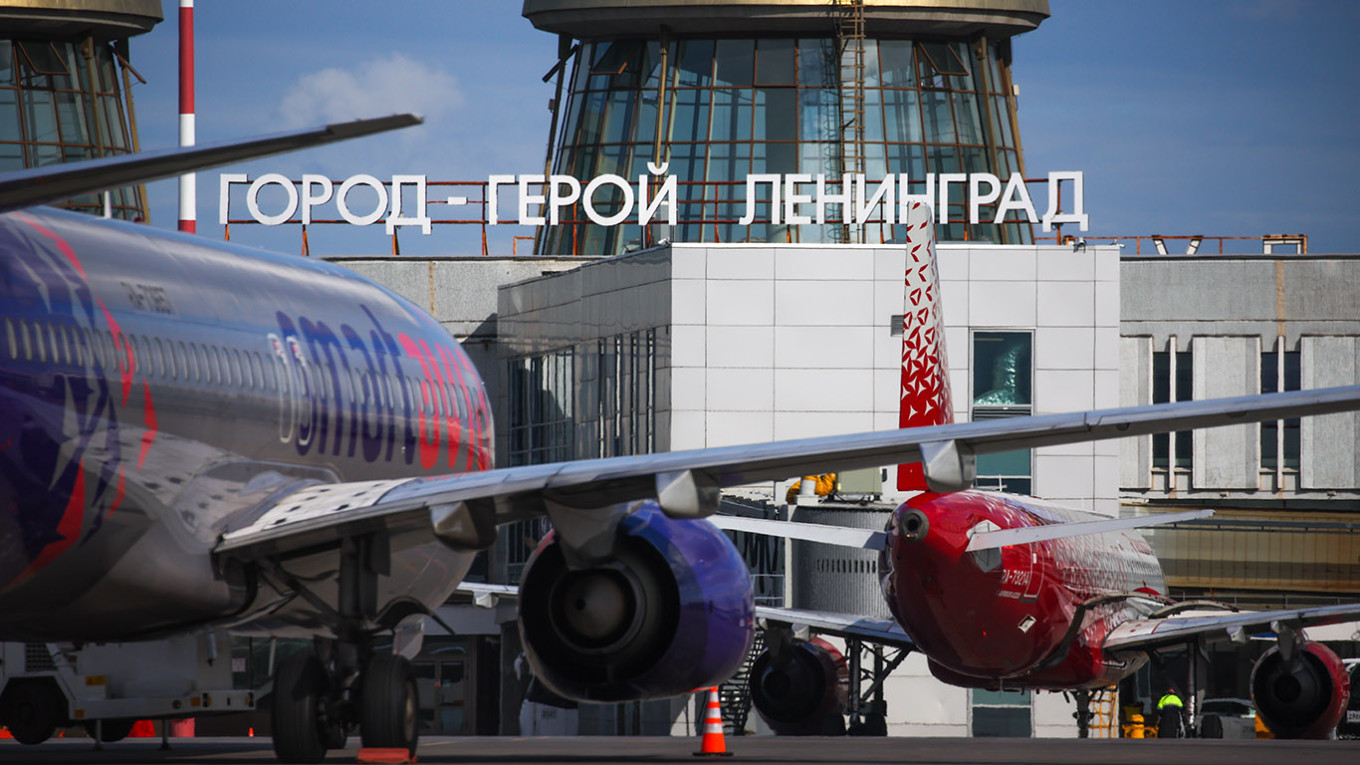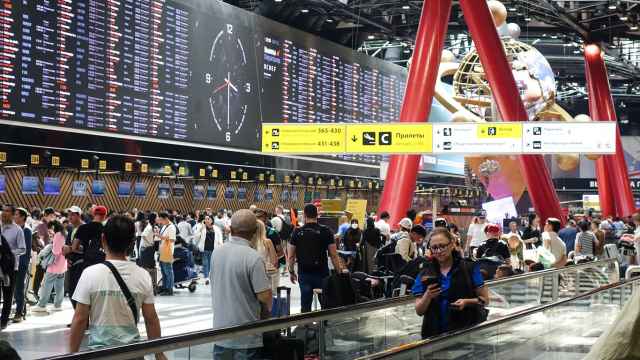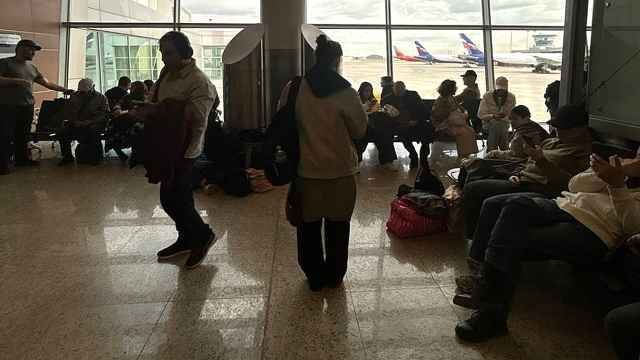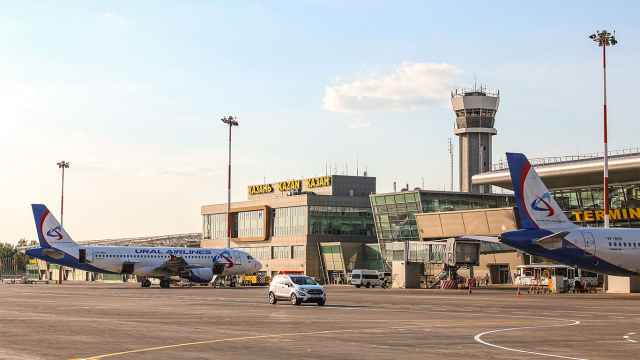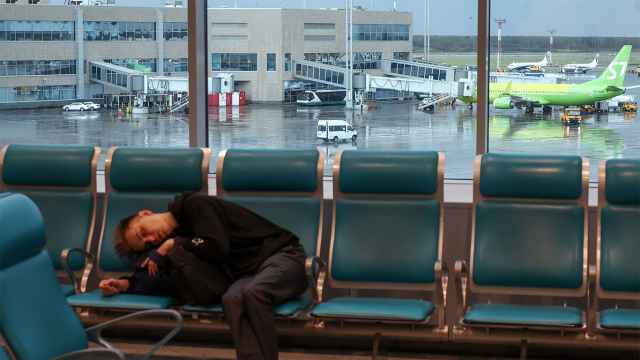More than 200 flights were delayed or canceled in Moscow on Tuesday following a mass drone attack on the Russian capital.
As drone attacks between Russia and Ukraine have intensified in recent months, thousands of airline passengers across Russia have had their travel plans thrown into chaos, with hundreds of flights delayed or canceled — while airlines themselves are also incurring massive financial losses.
The Moscow Times looks into how these disruptions are affecting daily life in Russia:
Drone threats
Drone attacks and airspace restrictions have severely impacted flight operations across Russia in recent months.
While the biggest wave of flight disruptions came at the start of the summer, Russian airports have also faced cancellations this month — though on a much smaller scale.
Tuesday’s disruption at Moscow’s airports was the largest so far in September. Some passengers were also unable to reach their destinations on Monday evening, with a Vladivostok-Moscow flight forced to land in St. Petersburg.
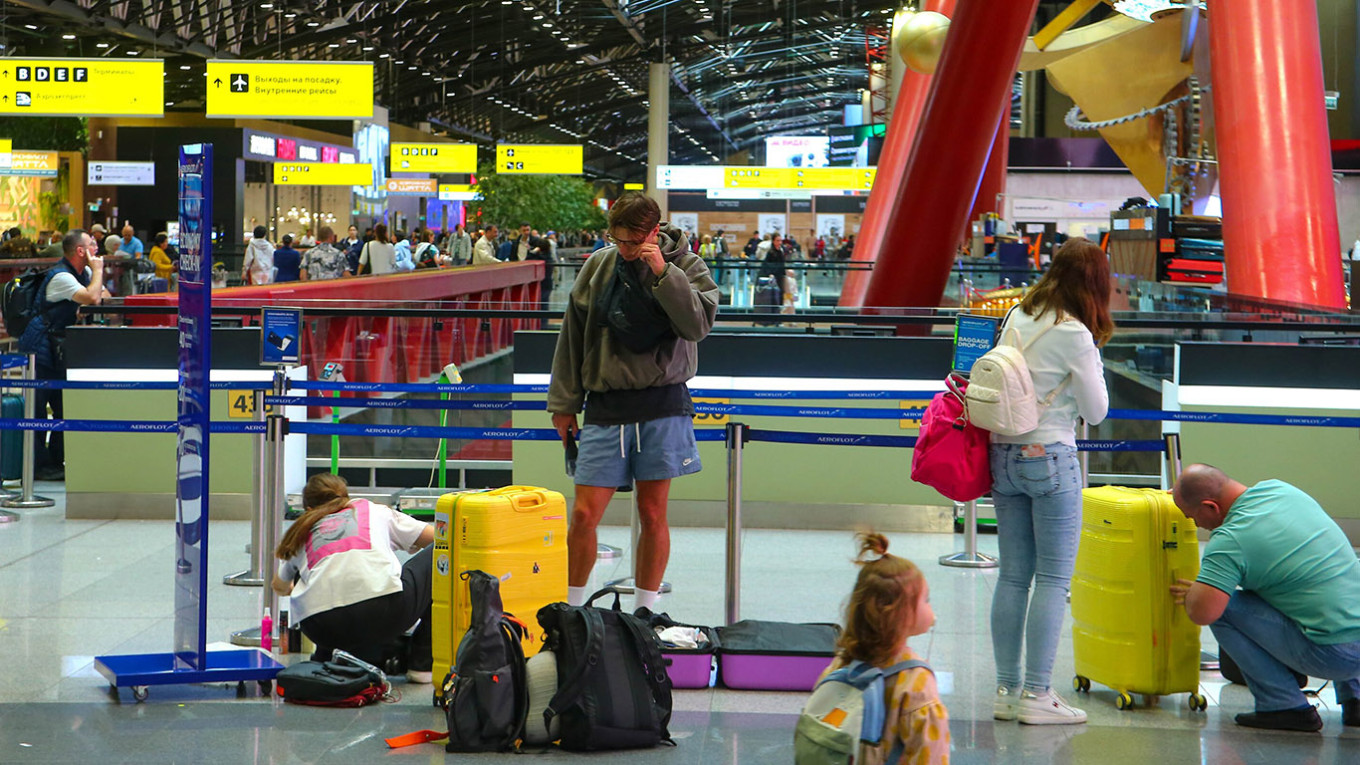
During the previous drone-related disruptions reported on Sept. 1, six airports — Volgograd, Saratov, Samara, Kazan, Nizhnekamsk and Nizhny Novgorod — simultaneously restricted flight arrivals and departures. Departures to Ulyanovsk, Irkutsk, Novosibirsk, Yekaterinburg, Yakutsk, Norilsk and Moscow were also delayed.
Although the flight disruptions had subsided in August, temporary restrictions were implemented at the airports of St. Petersburg, Pskov, Volgograd, Vladikavkaz and several other regions.
One of the largest civil aviation disruptions occurred during a massive Ukrainian drone attack between July 5 and 6, with airports in more than 10 cities forced to close their airspace. Major hubs including Moscow’s Vnukovo, Domodedovo and Sheremetyevo and St. Petersburg’s Pulkovo were temporarily shut down.
According to state aviation agency Rosaviatsia, around 2,000 flights were delayed, 485 canceled and 43,000 tickets refunded. Rail operators added extra trains between Moscow and St. Petersburg to cope with the surge in passenger demand.
Another widespread disruption came ahead of the Victory Day holiday on May 9. At least 140 flights were delayed and around 60 flights to Moscow were canceled on May 7, according to the state-run TASS news agency.
Cyberattack
Russia’s flagship airline Aeroflot canceled at least 110 flights at the end of July after a cyberattack for which activist groups Cyber Partisans and Silent Crow claimed responsibility.
According to the hackers, the attack may have destroyed 7,000 of the carrier’s servers and resulted in the theft of 20 terabytes of data.
Aeroflot was forced to cancel dozens of flights for at least two consecutive days.
The hackers claimed that the scale of the breach was partly due to Aeroflot employees failing to follow basic security protocols. Russian authorities launched a criminal investigation into unauthorized access to computer information.
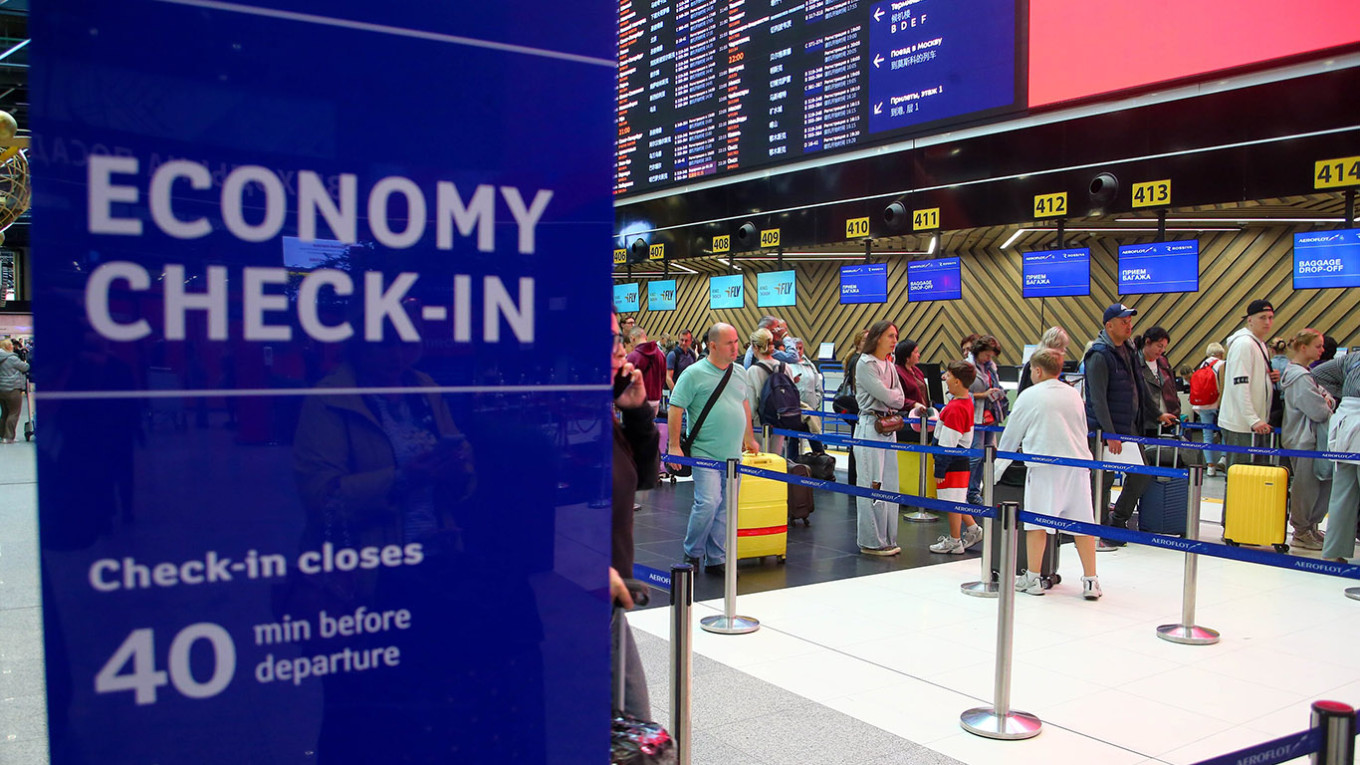
Costs
While it is difficult to estimate the total damage that drone attacks have caused Russian airlines since the start of the war, the mass disruption in July alone cost Russian airlines at least 20 billion rubles ($240 million), the Kommersant business daily reported.
Canceling a flight on a Boeing 737-800, one of the most widely used aircraft types in Russia, could cost airlines between 15 and 23 million rubles ($180,000-$276,000) depending on the route, preliminary estimates show.
Diverting a single aircraft to an alternate airport costs on average 1.5-2 million rubles ($18,000-$24,000) for a four-hour delay, an anonymous source at a Russian airline told Kommersant.
A Message from The Moscow Times:
Dear readers,
We are facing unprecedented challenges. Russia's Prosecutor General's Office has designated The Moscow Times as an "undesirable" organization, criminalizing our work and putting our staff at risk of prosecution. This follows our earlier unjust labeling as a "foreign agent."
These actions are direct attempts to silence independent journalism in Russia. The authorities claim our work "discredits the decisions of the Russian leadership." We see things differently: we strive to provide accurate, unbiased reporting on Russia.
We, the journalists of The Moscow Times, refuse to be silenced. But to continue our work, we need your help.
Your support, no matter how small, makes a world of difference. If you can, please support us monthly starting from just $2. It's quick to set up, and every contribution makes a significant impact.
By supporting The Moscow Times, you're defending open, independent journalism in the face of repression. Thank you for standing with us.
Remind me later.



